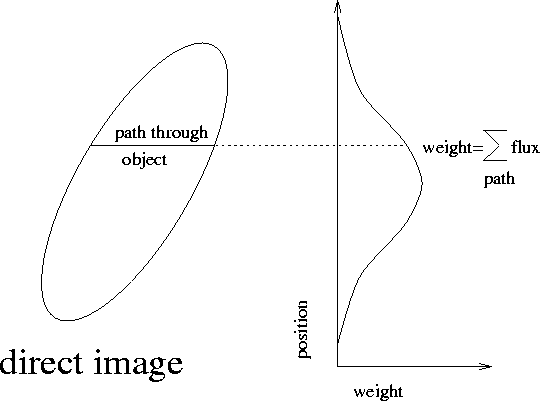 |
Extended objects are treated differently from point sources since the
proper weighting of the spectra is not known a priori. The proper
weights are determined with the help of the direct image. The basic
assumption behind the weighting used by calnic C is that the shape of
the object is independent of wavelength.
The weights of extended objects are computed as follows. First, the size and orientation of the objects are computed by multiplying the moments of the direct image with a user defined factor SZ_FACTOR. The weights are then computed by summing the pixel values in a given row of the object on the direct image. The extend of the object on the direct image is determined by the ellipse which is defined by the size and orientation of the object (see figure 3.3). Since the orientation of the object is not necessarily along the columns of the image, lines of constant wavelength are not necessarily perpendicular to the dispersion direction. This is later taken into account for the extraction of spectra of extended objects.